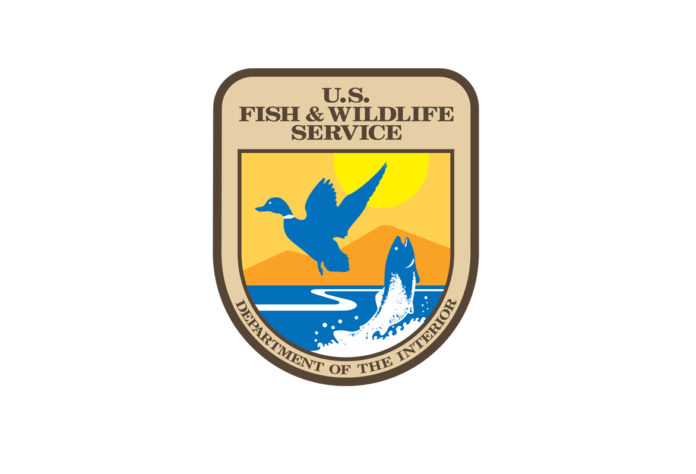WASHINGTON, D.C. – The U.S. Fish and Wildlife Service is awarding more than $6.6 million in tribal wildlife grants to federally recognized Native American and Alaska Native Tribes in 17 states. The awards will support 37 projects that benefit a wide range of wildlife and habitats, including species of Native American cultural or traditional importance and species that are not hunted or fished.
“Respect for wildlife and their habitats is central to Indigenous communities’ relationships with our natural world,” said Secretary of the Interior Deb Haaland. “Since time immemorial, Native American and Alaska Native Tribes have engaged in conservation efforts that continue to inform our decision-making today. This funding opportunity will help support our collaborative conservation efforts with tribes to restore, conserve and protect tribal resources, wildlife habitat and species – a main pillar of the America the Beautiful initiative.”
The America the Beautiful initiative – the Administration’s goal to conserve, connect, and restore 30 percent of lands, waters, and wildlife by 2030 – calls upon local, state, and federal leaders to honor tribal sovereignty and support the priorities of tribal nations when making decisions related to sustainable land management and the conservation of natural, cultural, and historical resources.
Since its inception in 2003, including this year’s 2021 Tribal Wildlife Grants awards, the competitive Tribal Wildlife Grants Program has awarded more than $105.6 million to Native American and Alaska Native Tribes, providing support for 593 conservation projects.
“The Tribal Wildlife Grants Program provides an unparalleled opportunity for federal and state government agencies to partner with tribes in the conservation of our shared and highly valued natural heritage, as well as cultural priorities,” said Service Principal Deputy Director Martha Williams. “These grants are critical in helping achieve these goals and strengthening partnerships between the Service and tribes.”
The grants have enabled tribes to develop increased management capacity, improve and enhance relationships with conservation state partners, address cultural and environmental priorities, and help train the next generation of conservationists by engaging tribal students interested in fisheries, wildlife and related fields of study. Some grants have been awarded to support recovery efforts for federally listed threatened and endangered species.
Examples of projects approved this year include:
Hoonah Indian Association in Alaska (Strategic Stream Restoration through Hoonah Native Forest Partnership) – $199,817 to benefit tribal fish and fish habitat and increase capacity to assist with fisheries management of culturally important anadromous species.
Pechange Band of Luiseno Mission Indians in California (Audie Murphy Management) – $193,989 to implement a wildlife management project for the biologically and culturally sensitive southwestern pond turtle and burrowing owl.
Little Traverse Bay Bands of Odawa Indians in Michigan (Little Traverse Bay Bands of Odawa Indians Migizi Aviary/Rehabilitation Facility) – $200,000 to help develop and construct an Eagle Aviary/Rehabilitation Facility to house, rehabilitate and release eagles and provide educational outreach opportunities
Red Lake Band of Chippewa Indians in Minnesota (Red Lake Band of Chippewa Indians golden-winged warbler and American woodcock monitoring, critical habit restoration and young forest education project, Phase II) – $199,770 to address large-scale declines in several important bird species that require multiple age class forest habitats to thrive.
Pueblo of Santa Ana in New Mexico (A Tribal Link in the Chain—the Pueblo of Santa Ana’s Commitment to Wildlife Connectivity and Safe Passage) – $198,308 to benefit and protect wildlife, educate the community about wildlife connectivity, and contribute to improving local and regional wildlife connectivity with a tribal link.
Tonkawa Tribe in Oklahoma (Tonkawa Tribe Pollinator Enhancement Project) – $159,643 to preserve and enhance a habitat for bees, butterflies and other pollinators, as well do surveys identifying bee and butterfly species and sponsor a butterfly education and awareness day.
Upper Mattaponi Indian Tribe in Virginia (Mattaponi River Cultural Species Assessment and Fisheries Training Project) – $200,000 to plan and train tribal citizens with the Service’s Harrison Lake National Fish Hatchery in hatchery operations and fish and mussel culture, assessing barriers to fish migration, and surveying and monitoring species with the goal of building a Mattaponi River hatchery that meets their aquatic species recovery needs.
These grants are provided exclusively to federally recognized Native American and Alaska Native Tribal governments, and are made possible under the Related Agencies Appropriations Act of 2002 through the State and Tribal Wildlife Grants Program.













































